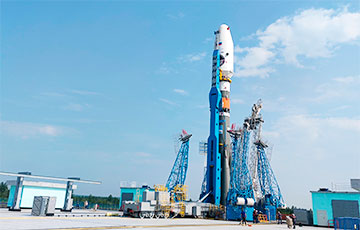Russia Finds Whom To Blame For Lunar Mission Failure
6- 22.08.2023, 11:07
- 8,406

Top managers of Roskosmos may be dismissed.
Roskosmos is preparing for serious purges at the level of top managers after the failure of the first lunar mission since the Soviet era, Izvestia writes, citing three sources in the space industry.
According to one of them, the first deputy general director of Roskosmos, Alexander Ivanov, may be dismissed. He oversees the entire technical part of the state corporation and, as head of the state commission for the launch of Luna-25, signed the final protocol on readiness.
However, Ivanov, who previously worked at Roskosmos from 2013 to 2018, returned to the state corporation just a year ago and it is difficult to blame him for what happened, the source said.
Another candidate for resignation is Deputy CEO for Space Complexes and Systems of Roscosmos Mikhail Khailov. According to the source, most likely, Khailov will be fired, and Ivanov will be reprimanded.
Responsible for the failure of the lunar mission can also be direct executors — scientists and programmers who served the launch. In this case, specialists from Lavochkin SPU, the main executor of the project to create Luna-25, as well as employees of the Space Research Institute of the Russian Academy of Sciences, who developed the scientific program of the expedition, will bear responsibility.
The Russian space program is failing due to corruption, mismanagement and sanctions, says RAND Corp senior researcher Bruce McClintock: “It's been long overdue, and it was practically their last chance to reclaim deep space authority.”
The problems in the space industry that led to the collapse of the lunar station began long before the work of the current Roscosmos team, the Izvestia source admits, but the current managers will probably have to answer.
Luna 25 crashed while maneuvering before landing. According to preliminary data, the cause of the accident was the abnormal operation of the engine: it worked longer than necessary — 127 seconds instead of 84, said the head of Roscosmos Yuri Borisov. At this time, the station was correcting its orbit, so the error became fatal — the device “slowed down” a lot and just fell on the moon.
The mission launched from the Vostochny Cosmodrome on August 11, 2023, and on August 16, the station entered a circular lunar orbit with a stable altitude of 100 km. It was on it until Saturday, August 19, after which it had to reduce the flight altitude to 18 km above the surface of the moon. But at that moment the apparatus crashed.
The failure of the mission was “an invaluable experience,” head of Roscosmos Borisov said. He attributed the failure to a 50-year break in the research program. According to him, scientists and engineers “have to re-learn technologies,” so “no one gives guarantees for success.” After the accident, an emergency commission was created, the results of its work will be taken into account when planning the next missions.
Luna-25 became the first Russian spacecraft launched to the Earth's satellite since 1976 and the “longest-term construction” in domestic space. Initially, its flight was planned for 2014, but in the end was postponed eight times.










